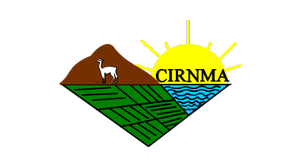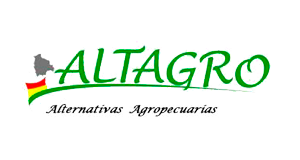Andean schoolchildren prepare to face climate change and improve family farming.
Disseminate, through a participatory scaling methodology based on a Virtual Dissemination Platform (VDP), knowledge and climate-resilient technological innovations that enhance the family production systems of the Peruvian-Bolivian Altiplano
Context of the story
Andean family farming faces a scenario of climate change and needs to intensify its productivity in a sustainable manner. In the family nucleus, young people are key elements. However, they are not considered in technology transfer. It is planned to reach this segment by disseminating locally validated agricultural knowledge obtained through research. A methodology for scaling up Agricultural Technological Alternatives (ATAs) has been followed using, as a tool, a virtual dissemination platform (VDP). This tool has been operational for 42 months. Through its monitoring system, it is observed that the beneficiaries (women and men) have strengthened their knowledge in preparation for their future role as “new farmers”.
How is Technical Cooperation structured?
The implemented initiative
The Project has been structured with three components: a) development of a methodological process that includes convening stakeholders, definition of beneficiaries (rural students), a baseline study and a systematization of agricultural technological alternatives (ATAs); b) develop a Virtual Dissemination Platform (VDP) where ATAs are included and that allows beneficiaries to access this knowledge virtually, with support from workshops (participatory/virtual) and demonstrative modules, and c) create conditions for continuity with local stakeholders. The central focus, disseminating ATAs, enabled students to install several of them in their properties as a replica of what they learned when interacting with the VDP. This confirms the scaling process is functioning correctly.
VIRTUAL PLATFORM AS A DISSEMINATION TOOL (VDP)
The technological solution
The orientation of the CT is to strengthen Andean agriculture in a context of poverty, environmental fragility, climatic irregularity, and socioeconomic restrictions. The target group is rural students of both sexes from the Peruvian-Bolivian Altiplano. This segment is not a priority in existing technology transfer programs. Therefore, the initiative considers that this young population needs knowledge, guidance, and agricultural skills because in the future they will be responsible for productive units. The strategy is based on disseminating validated and climate-resilient agricultural technology alternatives (ATAs) through a Virtual Dissemination Platform (VDP). The VDP includes 60 ATAs in areas of agriculture, livestock, processing, among others, which have been locally validated and are consistent with the Andean family production system. It is hoped that the new farmers and innovators will be the ones who strengthen local agriculture and become leaders in transferring knowledge.
“As a user of the VDP, in 2019, I downloaded the earthworm ATA. Now, in 2021, with my parents, we raise more worms, we produce three compost crops a year and I continue to teach my classmates so they can do the same”
Results
There are five levels of actors. Students are the “focus of interest”. 33 agreements were signed. In 2018, a survey was taken of 943 students and repeated in 2021 with 688. In 2018, 10% talked to their parents about technology. In 2021, 70% did. The agricultural ATAs were rated as "good" (54%) and "very good" (40%). In 2021, 98% want to install ATAs in their properties. The VDP recorded 21,596 visits. Of these, 945 users interacted 3,680 times. From the VDP, 25 ATAs were downloaded in 1,978 opportunities. 111 replicas were installed in homes. 98 teachers use the VDP as an educational reference. The face-to-face workshops registered 2,678 students in 80 events. The 46 virtual workshops had a total of 1,011 students. Following the virtual workshops, the correct answer rate was 76%. 369 students participated in the Modules. In the “native potatoes” contest, 68 students participated. They recovered 18 potato varieties from being lost.

 Back to the project
Back to the project Peru
Peru Bolivia
Bolivia






